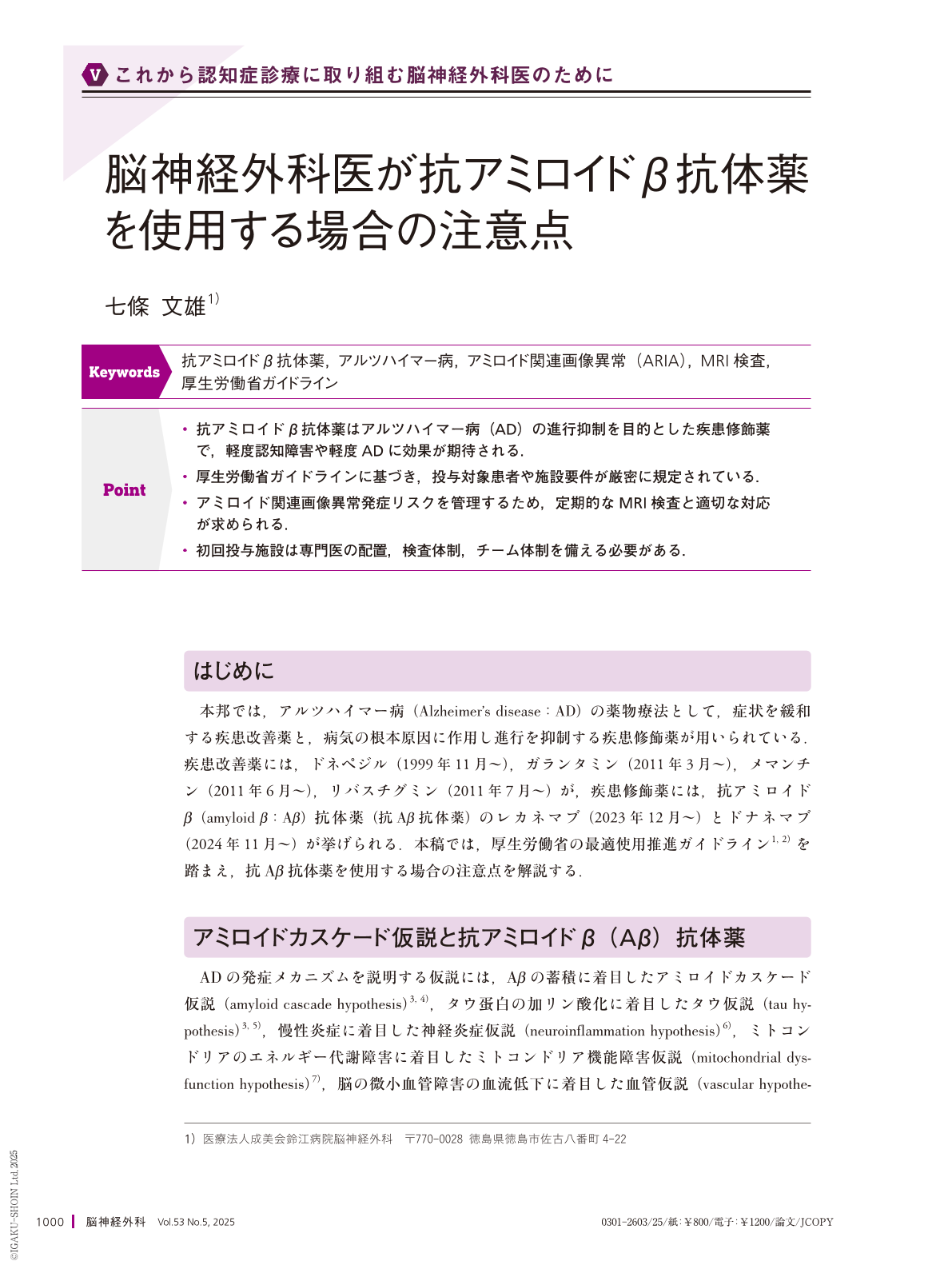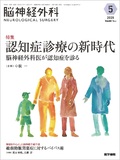Japanese
English
- 有料閲覧
- Abstract 文献概要
- 1ページ目 Look Inside
- 参考文献 Reference
Point
・抗アミロイドβ抗体薬はアルツハイマー病(AD)の進行抑制を目的とした疾患修飾薬で,軽度認知障害や軽度ADに効果が期待される.
・厚生労働省ガイドラインに基づき,投与対象患者や施設要件が厳密に規定されている.
・アミロイド関連画像異常発症リスクを管理するため,定期的なMRI検査と適切な対応が求められる.
・初回投与施設は専門医の配置,検査体制,チーム体制を備える必要がある.
In Japan, anti-amyloid β (Aβ) monoclonal antibodies, including lecanemab and donanemab, have recently been approved as disease-modifying therapies for early-stage Alzheimer's disease (AD). These drugs, developed based on the amyloid cascade hypothesis, target toxic Aβ aggregates: lecanemab selectively binds to soluble protofibrils, while donanemab targets Aβ plaques. The Ministry of Health, Labour and Welfare (MHLW) has issued Optimal Use Guidelines that specify criteria for administration: informed consent from both patients and caregivers; cognitive assessments (MMSE and CDR); confirmation of Aβ pathology via amyloid PET or cerebrospinal fluid (CSF) testing; and MRI screening to assess the risk of amyloid-related imaging abnormalities (ARIA). ARIA is a significant adverse event and requires regular MRI monitoring. Initial administration is limited to certified facilities staffed by experienced specialists and equipped with the necessary diagnostic infrastructure. After six months, treatment may be continued at collaborating institutions. The APOEε4 genotype is a known risk factor for ARIA but is not covered by insurance. Caution is advised when co-administering anticoagulants or antiplatelet agents. The guidelines also require the use of official treatment cards to inform healthcare providers. This article summarizes the clinical precautions, diagnostic requirements, and facility standards necessary for implementing anti-Aβ antibody therapy in accordance with current MHLW Guidelines in Japan.

Copyright © 2025, Igaku-Shoin Ltd. All rights reserved.


